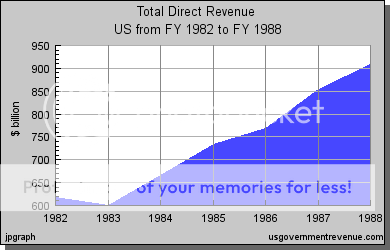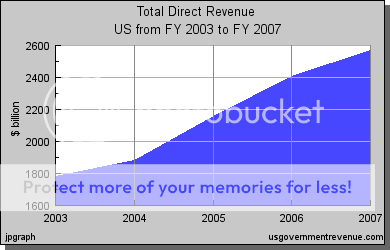- Joined
- Jul 27, 2010
- Messages
- 37,412
- Reaction score
- 13,542
- Gender
- Female
- Political Leaning
- Other
Why didn't it, then? Why did they continue to outsource and not re-invest in America if that is the case?
These two statement are contradictory. First you attribute it to the tax cuts then say it has more to do with the economy than anything. Which is it?
I personally don't see any evidence that Bush's tax cuts did anything you claim, in theory or in reality.
Our economy didn't really "grow" either, we didn't begin producing more. If anything speculation increased tremendously during that period, not actual growth. GDP is a poor reflection of economic reality in my opinion, especially in America. How can 70% of an economy be based on consumption? If people increase consumption, which therefore "grows" the economy, how is that a good thing?
It's not a good thing in general... but it seems like the best way to grow a consumption economy would be to give consumers more tax stimulus (the people, middle class), not the corporations or the rich to trickle down to the consumers..


